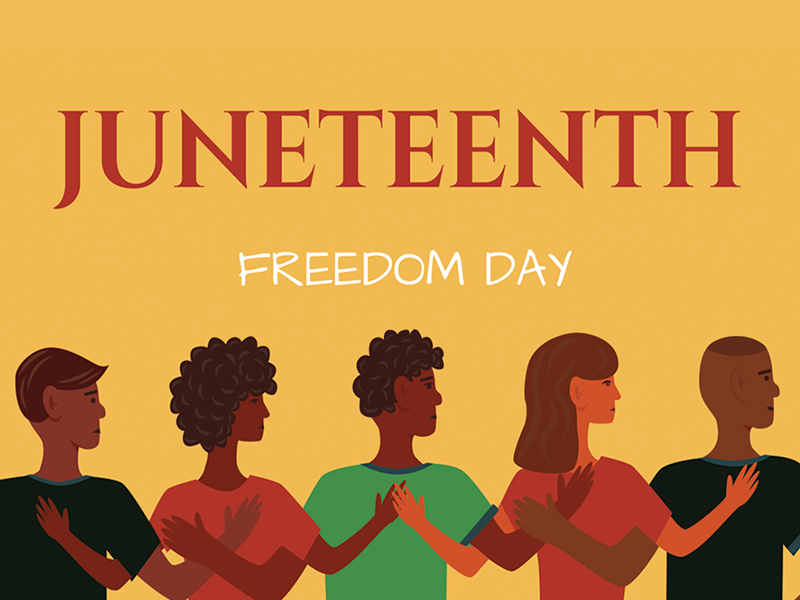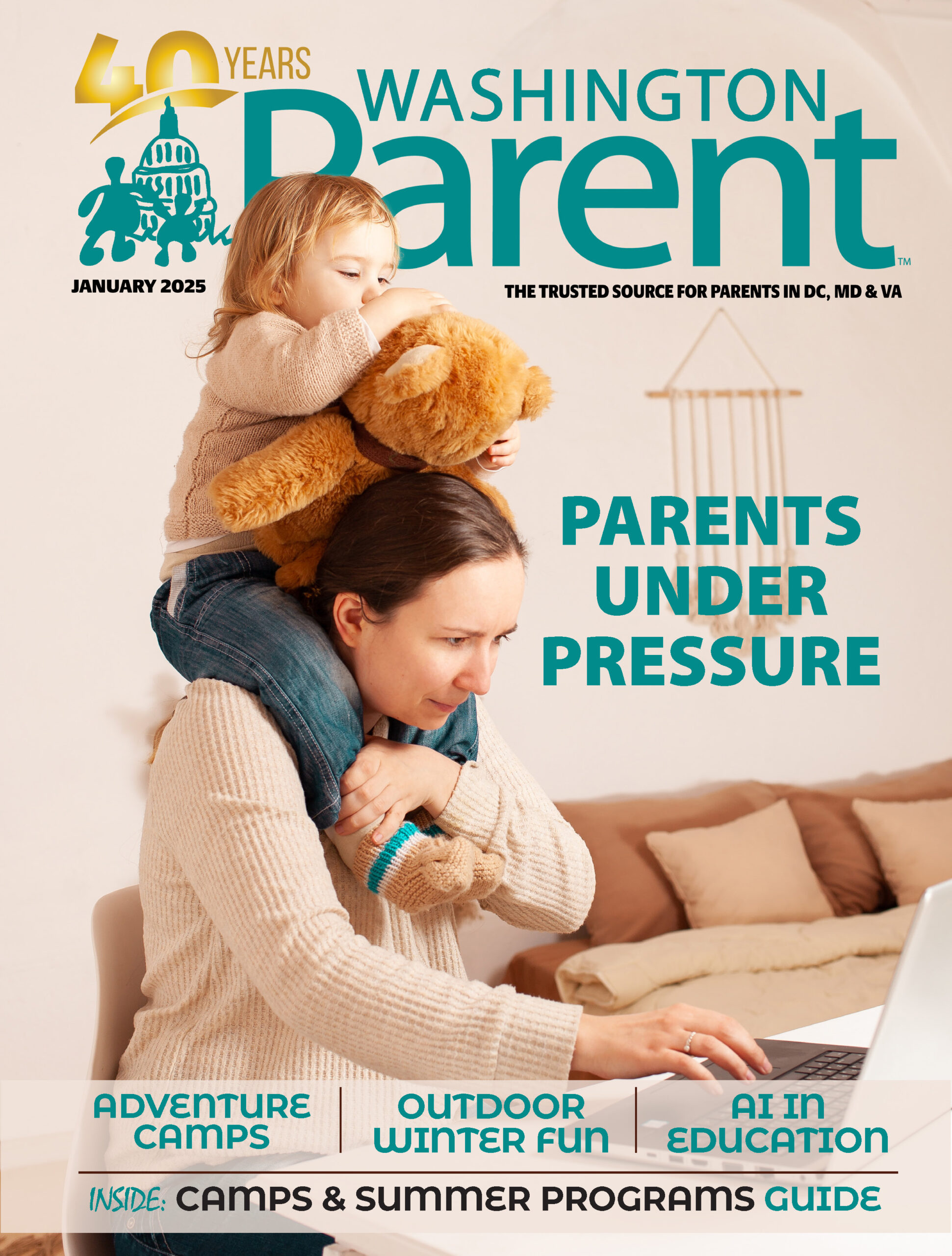Juneteenth is a time for celebration and reflection with the whole family. For young children, the abstract concept of freedom and the hard history of slavery can be challenging to grasp. National Museum of African American History and Culture’s Early Childhood Education Initiative Team offers a guide on how to talk to kids about slavery and freedom in age-appropriate ways in the context of this holiday.
What is Juneteenth?
Juneteenth – also known as Freedom Day, Jubilee Day, Liberation Day and Emancipation Day – is a holiday celebrating the emancipation of African Americans who had been enslaved in the United States. Although the emancipation proclamation was signed almost two and a half years earlier, the news of this important decision didn’t reach Texas until June 19, 1865. Now, Juneteenth is celebrated annually on June 19th and has become a time for celebration. People honor Juneteenth in many ways, from parties and parades to memorials and lessons. However it’s celebrated, it’s a time to share stories of resilience, resistance and liberation and to uplift Black joy.
Why Include Young Children in Juneteenth Celebrations?
The foundation for understanding our complex, diverse and often unjust world and our role in it is built during the first eight years of a child’s life. These are years when children are forming their identities, as well as constructing their attitudes towards people who are different from themselves. From birth on, children internalize the messages they receive – at home, in their communities, from media – about who they are, who other people are, who is valued in society and who is to be feared or seen as “other.” To develop a positive sense of self and others, young children need opportunities to learn about and celebrate who they are, as well as learn about and celebrate a multitude of diverse identities and cultures other than their own. When families and communities honor Juneteenth together, young children have a special chance to do just that.
For children of all racial identities, Juneteenth can be a time for learning about slavery in the United States, the resilience of Black people and the bravery of people of all racial groups who fought to end slavery. For Black children, this can be a time where they learn about their ancestors and past fights for justice and come together with their families and communities to express pride in Black culture and hope in a more just future. For children of color and white children, this can be a time to learn about the history of enslaved Africans and African Americans and celebrate with Black communities the uniqueness of their culture and lived experiences in the United States.
For all children, Juneteenth celebrations and lessons are only one part of a longer conversation about race, history and culture that will take place over many years as children grow and mature.
When Do We Talk About Slavery?
When and how to talk about slavery with young children is an ongoing conversation in the field of early childhood education. Cognitively, most children can have explicit conversations about slavery by age 6, with increasing depth at ages 7 and 8. Emotionally, they may be ready earlier or later. Regardless of the child’s readiness or whether you introduce it to them yourself or not, they will likely hear about slavery in some capacity by the time they are 5.
Whatever the age, a child’s first introduction to race should never be centered on trauma. African American history does not start with slavery, and it does not end there either. When a child’s first conversations around race are about pain, hate or adversity, it communicates that talking about race or differences is negative or something to avoid. A child’s introductions to race and history must be grounded in pride, empowerment and celebration first. Celebrating and teaching stories of Black culture, leadership, inventions, beauty and accomplishments allows children to first understand Black identity as special and strong, and better equips them to later hear about, understand and emotionally process the terrible truths of slavery. Juneteenth events can be wonderful opportunities to introduce the concepts of slavery with a focus on resilience and within an environment of love, trust and joy.
Slavery, Freedom and Juneteenth Conversations
The dominant narrative is that the United States started as “the land of the free.” Yet, that was simply not true for many people. And in many ways, this ideal is still to be realized. Telling our children a more nuanced, complete, and accurate account of history helps us all live up to the ideal of freedom and gets us closer to that reality. Sometimes because of how much we as adults know or understand about slavery, we can feel like there isn’t a way to talk about it with children simply yet honestly. But there is a way.
Start by asking yourself questions like: Why is this event or topic important? What do I want my child to be able to do or understand with this information? What is essential that they know now? What can they be told later? Questions like these help you to stay focused in your discussion with your child. Too many details or advanced information about violence or laws can take the conversation in a direction that your child isn’t ready for developmentally or emotionally. Remember that even with simple storytelling, children can feel confused or take a long time to process and respond. Conversations about history may take place over the span of a few days or longer.
Below are examples of simple, accurate and age-appropriate language and questions to inspire ongoing conversations with children about slavery and freedom.
What is Slavery?
Slavery is when one person owns another person. A very long time ago (even before your grandparents or I were born or before there were buildings and streets), white people created an untrue idea that white people were better than Black people. They used this idea to pretend that slavery was OK, but it’s not OK for some people to be owned and hurt by other people just because of their skin or where they come from.
Slavery started in the United States a very long time ago when Africans were taken from their homes without their permission, brought to the United States far away from their families and special things and forced to live and work here without being paid or treated well. This was not OK. Enslaved Africans and African Americans were smart and skilled workers and had their own ideas and families and came from many different places and cultures, but people called them slaves.
Enslaved people were forced to do things they didn’t want to do and were hurt if they tried to do what they wanted or leave the places they worked. Being enslaved was hard, scary, unfair and hurtful. Enslaved Africans and African Americans knew that being treated this way was wrong and so they found ways to resist, build community and continue some of the traditions that connected them to their families and cultures. Many people of all different skin colors knew it was wrong, too, and bravely worked together with Black people to end slavery. Juneteenth is a holiday that celebrates the end of slavery.
What is Freedom?
Part of our celebration of Juneteenth is celebrating freedom. There are choices, or freedoms, that all people should have in their life. Freedom means you can act and to think the way you believe is best.
There are big freedoms and little freedoms. You have the freedom to say I want to play with blocks, not puzzles. Or you can say I like peaches instead of oranges. Those are choices you get to make. There are bigger freedoms or choices you make as you grow up:
- Freedom to express yourself in different ways.
- Freedom to choose your family and to stay together.
- Freedom to go to school, to travel or to work where you want to.
- Freedom to live where you want and be where you are treated well.
Enslaved Africans and African Americans did not have these freedoms. They could not visit their loved ones when they wanted to. They could not decide what work they did. They didn’t have the choice to learn to read, or to vote or to create a life that was best for themselves or their family. When slavery ended, those who had been enslaved claimed freedom in their everyday life. They could now make the decisions they thought were most important. This made them very happy. On Juneteenth we can celebrate freedom with joyous festivities!
Support Your Child’s Understanding
Ask your child questions to help continue or conclude the conversation in a way that is best for them:
- What do you think about this true story?
- How are you feeling?
- What questions do you have?
Remember these conversations are ongoing! As your child grows, they can learn more specific stories and information about slavery and will further understand and define freedom for themselves. As you have conversations, always center the humanity of those enslaved by talking about ways they resisted, found joy and expressed agency. Criticize the institution of slavery, pointing out those who directly and indirectly benefited from the dehumanizing act of slavery. Over time, as children absorb the information, make connections to current events to build their awareness about how the legacy of the slave system continues to shape American culture and provide benefits to some while hurting others.
Related
Celebrating Juneteenth – The Official End of Slavery
Black Americans Who Called D.C. Their Home
5 Places to Visit for Black History Month


